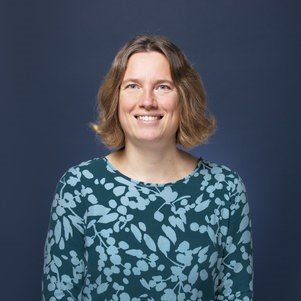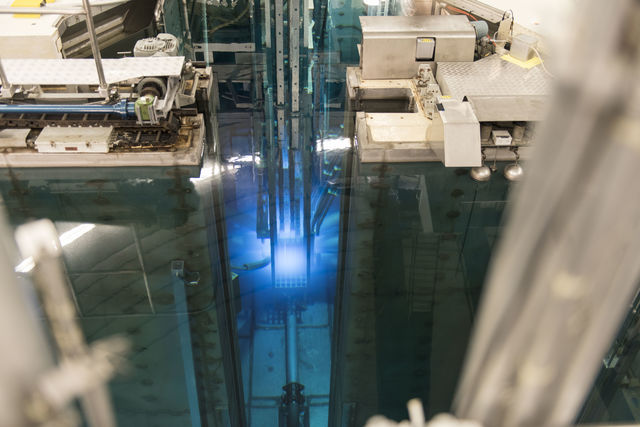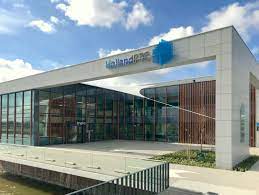OncoTech
Cancer is the number one cause of death in the Netherlands. Cancer patients often require long-term care. Within OncoTech, we develop technology for all phases of cancer care – prevention, diagnosis, treatment and follow-up.
HollandPTC, the proton therapy clinic at the TU Delft campus, is one of our flagship institutes. The HollandPTC R&D consortium not only aims at proving the value of proton therapy, but also at making it even more precise, improving its cost-effectiveness, and increasing its accessibility.
Another objective is to develop remote oncology. With personnel costs covering 95% of the oncological care budget, we aim to increase overall efficiency and move care as much as possible from the hospital to the home. Think of, for example, smart data technology, wearables, and optimizing the patient journey.
We also help improving the fundamental understanding of cancer, from the patient level (e.g., by developing innovative medical imaging technology) down to the microscopic (e.g., cancer-on-a-chip) and molecular scales (e.g., nano-manipulation).
The expertise we bring to the field of oncology ranges from physics, chemistry, and electronics to data science and artificial intelligence, and from human-centered design to responsible innovation.
Engineers collaborating closely with physicians – that is how we help shape a future of sustainable oncological care.
Research theme leader
Protonresearch
At HollandPTC - our proton therapy clinic that houses research as well as patient treatment facilities - physicians, biologists, and (TU Delft) engineers roam the hallways and meet each other. HollandPTC is at the forefront of the rapidly growing proton therapy field; globally, the number of institutes has doubled in only three years’ time.
Proton therapy is a very advanced, highly accurate, but also relatively expensive treatment. It reduces the side effects of radiation therapy suffered by patients. We aim to make the treatment even more precise, for example by developing new technologies that enables visualizing the tumour as well as the proton beam in real-time and with high definition. This helps to irradiate healthy tissues less and can be used to reduce the necessary amount of treatment fractions – ultimately reducing the cost of treatment and improving accessibility.
It takes time and dedication to develop such innovations and implement them safely in the clinical workflow. Yet, we are convinced that continuous technological improvements will allow us to reduce the number of fractions and the cost of treatment substantially.
Remote Oncology
Remote oncology aims to lower healthcare costs and improve the quality of life of patients. Because of our aging population, cancer has become the number one cause of death. Additionally, many cancer patients require longer care as their life expectancy improves. Whereas, twenty-five years ago, improving treatment quality was a main driver of innovation – we must now also think about maintaining treatment capacity and keeping costs in balance, while minimising the overall patient burden.
Contrary to popular belief, investments in medical-technological equipment cover only about 5% of the healthcare budget. Personnel costs represent a much larger cost factor in oncological care and it proves more and more difficult to find qualified personnel. Oncologists therefore seek ways to increase efficiency and move care outside of the (relatively expensive) hospital walls. What kind of care can only be provided by a regional care centre, and what kind of care can we safely apply at home? Technology will play an important role in implementing this transformation – think of data technology and wearables for monitoring and screening in the comfort of a patient’s own home.
Remote Oncology is not only a technological but also an organisational challenge, one that offers opportunities to reduce the impact a care pathway has on a patient’s well-being. We therefore bring in TU Delft’s experience in optimising so-called patient journeys to help realizing this paradigm shift in oncological care.
Fundamentals of oncology: from molecules to tissues
Research on cancer over many decades has resulted in important advances in understanding how to prevent, diagnose, and treat cancer, yet cancer currently still remains one of the major challenges faced by society. We urgently need better strategies for cancer prevention and early detection and more precise diagnoses and treatments. Moreover there are multiple cancers for which there is no cure yet.
Fundamental research on oncology, from the molecular to cellular to tissue scale, is required to address these unmet needs. Traditionally, research on oncology mainly focused on molecular and genetic information. However, there is a growing recognition that cancer initiation, progression and metastasis are strongly influenced by biophysical factors associated with the biomechanics of the tumor microenvironment, coupled with cellular cues and genetic factors.
TU Delft researchers are combining broad multidisciplinary expertise from soft matter physics, materials science, biophysics, and mathematics, as well as novel technologies such as microfluidics, advanced imaging, and data science, to unravel the fundamental mechanisms that cause cancer and come up with new diagnostics and therapeutics.
Funding
There are numerous funding sources available for your research activity: from personal-, national- and international grants to funds for publishing and dissemination which are described in your grant proposal.
If you are interested in any of these calls and would like to receive more information or funding advice about a specific call and/or support with proposal preparation, feel free to contact Jaga Schreiber, funding advisor and coordinator at TU Delft Innovation & Impact Centre, j.k.schreiber@tudelft.nl, 06-28362580
Facilities
TU Delft has many research facilities. Most of these facilities are accessible and available for externalusers: users from other departments, faculties, universities, colleges, but also from companies. Our facilities are an important element of the regional innovation ecosystem. By sharing research facilities with internal and external parties we stimulate cooperation and aim for new scientific and economic opportunities.



